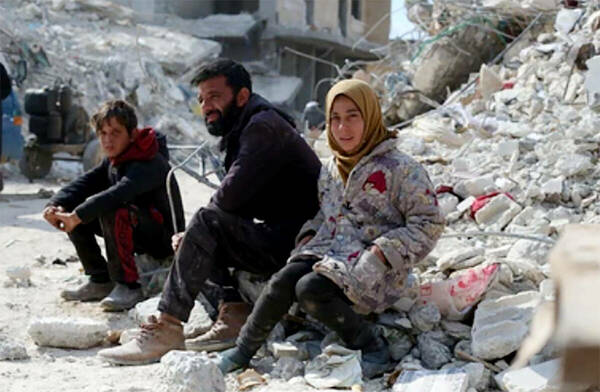Earthquakes and tsunamis, referred to among humanitarians as “rapid onset disasters,” strike suddenly on a massive scale, leaving widespread death and destruction and overwhelming local and national response capacities.
Think of the Indian Ocean tsunami of 2004, killing at least 225,000 people across a dozen countries, or the Haiti earthquake of 2010, which left more than 230,000 people dead and 1.3 million homeless. Or the magnitude 7.8 earthquake that struck Turkey and Syria on Feb. 6 that caused the deaths of over 50,000 people.
Important search and rescue efforts are needed within the first 12 to 48 hours after such disasters to save the most lives. Governments worldwide quickly responded to requests for international assistance, deploying rescue teams and offering aid. However, time-sensitive efforts assume that a responsible government is ready to open its borders and receive them.
Disasters of this magnitude are challenging in the best of circumstances. Yet the political and social context surrounding the Turkey and Syria earthquake and its aftermath is unusually complex.
Many believe Turkish President Tayyip Erdoğan’s obsession with power has weakened the country’s response to the earthquake that occurred just four months before a highly contentious election determining his political future.
In the tragic aftermath, Erdoğan insisted that international support be coordinated through the appropriate government agencies. Since taking office 20 years ago, Erdoğan has hollowed out important institutions and appointed loyalists without the necessary credentials.

Across the border, in northwestern Syria, Idlib has been controlled by several rival opposition factions since government forces lost control of the province in 2015. Since then, only one crossing between Syria and Turkey has been open for U.N. aid, dramatically limiting flows of supplies into the region — including the days after the devastating quake.
“We have so far failed the people in northwest Syria,” said UN’s top aid official Martin Griffiths on Feb. 12. “They rightly feel abandoned.” (The following week, the UN was able to send nearly 200 trucks loaded with aid through two border crossings.)
Given the number of displaced people in northern Syria, efforts must also be made to allow some Syrian victims to find shelter in southeastern Turkey. Turkey has been generous since the civil war started in 2011, housing nearly 4 million Syrian refugees, but Turks have grown impatient with the prolonged conflict.
However, following the massive earthquake, it will be necessary for Turkey — with the international community’s assistance — to continue to support resettlement. It is also essential to continue to fund the UN Syria Humanitarian Response Plan. (Last year, the plan only received 46 percent of the required financing.) Syria ranked among the 10 most food-insecure countries globally, with a staggering 12 million people considered food insecure before the February quake.
The sheer scale of this disaster will require a significant commitment from the international community for years. But for now, the critical issue is providing unfettered access to international aid organizations to help people meet their basic needs and have enough food, water, heating, and amenities to keep themselves alive.